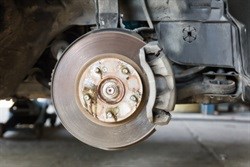
This is according to Dr David Molapo, head of Fleet Management at Standard Bank. "For example, fleet buyers may go for half-ton bakkies instead of one-tonners, simply because smaller vehicles carry a lower price tag. However, if a half-tonner has been bought to perform the job of a one-tonner, maintenance bills will push the life-time costs of a half-tonner way beyond that of a bigger bakkie," says Dr Molapo. It ends up being too expensive regardless of its purchase price.
"Once the use and application of the vehicle has been considered and the correct class of vehicle chosen, the range of brands and models within that class can still be quite bewildering. Again, careful calculation of the total cost of ownership of each vehicle on your short list can help you to make the best choice."
He illustrates that the purchase price of a vehicle can well be less than half of its total cost of ownership. For example, a small 1.6 sedan with a showroom price tag of R220,000 that has travelled for 120,000 kilometres over 48 months will accumulate a total cost of ownership of R465,000, broken down as follows:
Certain components of the total cost of ownership are clear, such as the repayment, tracking and licensing. However, calculating the amount of fuel and maintenance that a vehicle will require over its life span is more complex than it seems.
The first step should be looking at the official figures from the manufacturer. But keep in mind that they typically reflect the use of the vehicle under ideal circumstances. Fuel consumption, maintenance and tyres will certainly be higher than manufacturers' professed figures if a vehicle does a lot of dirt-road travelling or stop-start city driving.
Dr Molapo recommends that a buyer supplements the manufacturers' claims with information gathered from other fleet owners, industry bodies, the Automobile Association, vehicle reviews in the motoring media and advice from their vehicle financier.